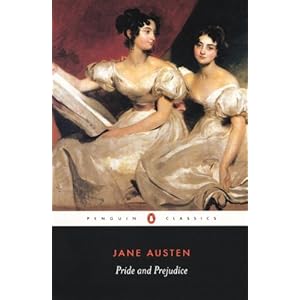Learning to read wasn't easy for me. My eyes didn't want to work scanning the lines of writing. The Adventures of Dick and Jane left me staring off into space. The first reading that captured my full attention was Dr. Seuss, aka Theodore Geisel. No surprise I am still a fan of the colorful, the whimsical, and the amusing. Make no mistake, there was wisdom buried beneath the laughter. Green Eggs and Ham taught about prejudice. The Lorax made us want to walk more softly on this earth.
Mostly after that, I just read what I wanted. My first taste of The Reading List and the classics came in Mrs. Cowden's fifth grade class. Intimidated by the high shelves of the library, I asked her for some recommendation. She handed me David Copperfield. After I got past my shock at the book's heft, I was sold. I read everything Dickens, London, Twain, and Shakespeare that library held.
Then, she handed me Jane Austen. I grew up in the Sixties and there weren't a lot of options for women. This was the first time that I read a classic written by a woman. I sat and looked at her name on cover page the tattered book (most of the books Wilson Elementary for their fledgeling library were second-hand and repaired with duct tape by Glenda Vickery, our librarian, and my Mom) for a bit and wondered. What was it like writing then?
I knew people who wrote then did so on typewriters, mostly manual. But, Jane Austen had to have written that whole book by hand. Why I never thought of the process before was something of a mystery then. I realize now part of the reason was that writing something that good seemed inaccessible to me before that moment.
Like most of the classics, place and time are as strong a character as the people living through them. The times were vastly different for women. "Entailments" meant that the property held by the Bennet family could not pass to any of the five female daughters. When their father died, they'd be left penniless unless they found a husband. I followed the sisters' trials and tragedies with a sense of awe. Imagine just walking out in the rain and ending up gravely ill?
You remember the Sixties Virginia Slims cigarette slogan: You've Come a Long Way, Baby. Well, indeed we had. Just looking at my college-educated Mom who taught school before she married told me that. Mom could vote, which meant she even had a say in our government. She was four years old when my Grandma got the right. She told me more than once to always make best use of my right to vote, too.
I laughed through the antics in Pride and Prejudice. And I loved the characters. But, I thought about the change in times and what that meant for me.
And I kept thinking about that as I moved from Jane Austen to the Bronte Sisters, and finally to Louisa May Alcott. Like many young women, particularly of the Southpaw nature, I had perpetually ink-stained fingers. I looked at my hand and I realized then whatever I wanted to be I was going to write.
Today, women in Afghanistan are proudly showing their ink-stained fingers because they, too, can now vote.
I viewed these pictures with tears because they made me realize that we've still got a long way to go, too. Women everywhere are fighting for the right to vote, to walk the streets safety, and to have the right to choose whether or not to keep a child foisted upon them by a rapist.
This entry is part of Courtney Webb of Stiletto Storytime and Alyssa Goodnight's 200th Birthday Celebration for Jane Austen.
List of participating bloggers is available on Alyssa Goodnight's page at http://alyssagoodnight.com/2013/01/pride-and-prejudice-anniversary-party-blog-hop/
Rebecca McFarland Kyle, January 2013
Monday, January 28, 2013
Subscribe to:
Post Comments (Atom)



Great piece. It is amazing to think that all of Jane Austen's works were hand written. And though I enjoy reading how her heroines navigate their difficulties with marriage being important to a woman's avoiding poverty, I'm very glad to be an American woman in the 21st century. We still have more to do for women around the world, but there has been progress.
ReplyDelete